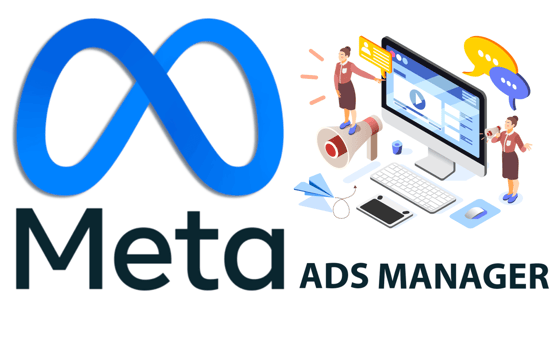
Hitting the Bullseye with Social Targeting
Kicking off a new campaign for your business on Facebook or Instagram? You’ll have several decisions to make, which can be a little intimidating at first. Start by asking yourself these questions:
- What is the goal of my campaign?
- Which kind(s) of ads should I run?
- Which audience(s) should I target?
The last one is especially important. To launch a successful social media campaign, you must build your target audience(s) strategically. Keep reading to learn how!

Source: LinkedIn
Put the Pedal to the Meta
Before we jump into target audiences, it’s important to know...
Meta Ads Manager is the platform where media buyers place ads on Facebook and Instagram, which provides three levels for creating new campaigns:
- Campaign Level: Defining your goals by choosing an ad objective
- Ad Set Level: Creating groups of ads that share settings for how, when and where to run
- Ad Level: Selecting your creative media (images or videos), text, links and call-to-action button
The Ad Set Level is where you’ll build your target audience(s) — and you have options!
.png?width=5425&height=3355&name=MicrosoftTeams-image%20(105).png)
Ready, (Ad) Set, GO!
At the Ad Set Level, you can target your potential customers based on the following traits and more:
- Age
- Gender
- Location
- Interests
- Behaviors
- Ways they interact with businesses
- + More!
Meta provides three types of campaign audiences based on your business goal(s) and marketing strategy:
- Core
- Custom
- Lookalike
Let’s explore when and why to use each one!
Core Audiences
This type of audience is best for businesses who already have specific target audiences in mind. Core Audiences are defined by criteria such as:
- Age
- Interests
- Geographical location
For example, if you’re advertising an ice cream shop, you can target users based on their location and interest in ice cream or desserts.
Custom Audiences
Custom Audiences are ideal for seasoned businesses who already have sources to draw from, such as:
- First-party data from a customer relationship management (CRM) tool or an email list
- Data from Meta sources like an event or a Meta Pixel, Facebook or Instagram page
This type of audience relies on these sources to target a company’s best customers.
Let’s circle back to our ice cream shop example. Say you’ve just launched a loyalty program and want to spread the word to your social communities. With a Custom Audience, you can target your existing Facebook and Instagram followers — which means you can advertise the program to folks who are already fans of your ice cream!
Lookalike Audiences
Much like they sound, Lookalike Audiences allow your business to reach new people whose interests align with those of your best customers. Here’s how it works! Meta uses an existing Custom Audience to create a new Lookalike Audience, leveraging info such as:
- Demographics
- Interests
- Behaviors
The goal? To reach new folks who will love your products as much as your fans do!
Once you’ve advertised your ice cream shop and promoted your new loyalty program to your social media followers, you can create a Lookalike Audience based on your following or a different Custom Audience.
The Audience Sundae
Want a more intricate strategy? Throw all three audience types into the mix! Let’s return to ice cream — but this time, as an analogy:
- Your Custom Audience = Vanilla bean ice cream
- Your Lookalike Audiences = Other types of vanilla ice cream
- Your Core Audiences = Sundae toppings
Much like adding sprinkles, nuts and caramel syrup to your sundae, you can layer on Core Audience features like age, gender and location to your Custom and Lookalike Audiences.
Word to the wise: When using multiple audiences or audience types in a campaign, try to keep your audiences simple and broad to avoid targeting the same people in more than one ad set. Luckily, Meta’s advanced ad auction algorithms will do most of the work for you behind the scenes!
Want help finding your ideal customers and hitting your campaign goal(s)? VI Marketing and Branding’s savvy team of digital marketing experts would love to collaborate with you!
Need more inspo? Browse our entire blog catalog here.








